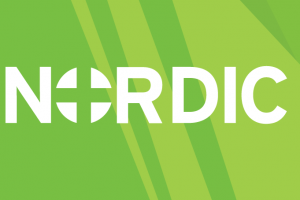Making E-Prescribing Safer for Behavioral Health and Addiction Treatment
As if the coronavirus pandemic weren’t challenging enough, the resulting social isolation, loss of employment, and increase in anxiety also has exacerbated the opioid epidemic. Drug overdose deaths surpassed 100,000 in a 12-month period for the first time last year, making treatment for patients and an effective response from providers increasingly important in this already underserved area of healthcare.
Understanding the Disease of Addiction
Above all, it’s important to understand that addiction distorts brain chemistry and is not something people can reason themselves out of by using their “thinking brain.” Addiction engages the “survival brain,” which means that once the pattern of drug use has been set up, people physically feel like they will die if they don’t respond to the drive to use an opioid.
The more we know about the complexity of addiction, the more effectively we can treat it and then advocate for those with the disease. Medications in combination with counseling and psychotherapy tend to be the most effective approach to treatment. This includes abstinence from all mood- and mind-altering chemicals except those that are prescribed appropriately for the disease.
Physicians sometimes use medications that are controlled substances to help the brain return to as near as normal functioning by alleviating the signs and symptoms of withdrawal, blocking and preventing further use, diminishing or alleviating craving, and normalizing or stabilizing the perturbed brain neurochemistry. Once the decision is made to use medications to treat someone with an opioid use disorder, providers are working in a highly regulated environment that requires extra steps before writing that first prescription.
Safely Prescribing Controlled Substances
Electronic prescribing for controlled substances (EPCS) is required by most states and will soon be required by the Centers for Medicare & Medicaid Services (CMS) for patients covered by Medicare’s Part D drug plan. In addition to EPCS, many states mandate that providers check prescription drug monitoring programs (PDMPs) before prescribing certain medications. These state databases monitor controlled substances and tell providers whether the patient has any prescriptions written by any physician in the state.
I work in Chicago, a border city, so I find being registered in Wisconsin and Indiana as well as Illinois is useful because a patient who might be doctor-shopping could go across state lines to fill prescriptions. Providers need to know if their state requires checking the PDMP and must be sure to comply with those mandates.
In addition to these safeguards, e-prescribing also gives providers an expanded view of medication history for their patients beyond controlled substances, which is extremely important for understanding the patient’s medical and behavioral conditions and complications. In providing care for people with opioid and substance use disorders, providers have two significant purposes for medication history: One is that the history documents the previous abuse of illicit substances by the individual and gives providers what they need for documenting choices around drug testing. The other gives them a sense of what they should be looking at in terms of what a patient might be using when they relapse.
Better Processes for Better Outcomes
For addiction treatment providers to effectively address this underserved area of healthcare, they need smooth processes and systems for treatment and documentation. Comprehensive disease management technology can automate systems and eliminate ambiguity in documentation for maximum impact of recovery services, to gain reimbursement, and to put the provider in a position to achieve better outcomes. Integrated e-prescribing workflows make the prescribing process more efficient and ensure providers are well-informed about the medications their patients are taking. With all the challenges we’re facing in managing opioid use disorder, useful tools like these are essential to managing our patients’ care.
About Andrea Barthwell, M.D., DFASAM
Dr. Barthwell is founder and CEO of the international healthcare and policy-consulting firm EMGlobal and member of the Health Advisory Board at RAND Corporation. A pioneer in the field of addiction medicine, she also is a Senior Advisor and Strategist to AZZLY, a specialty-specific provider of electronic health record (EHR), revenue cycle management (RCM), and patient management (PM) solutions for behavioral healthcare and addiction treatment provider organizations. Having a fully integrated EHR and e-prescribing solution for controlled substances and prescription drug monitoring programs in each state is invaluable. AZZLY Rize Addiction Treatment EHR is seamlessly integrated with DrFirst’s Rcopia. Dr. Barthwell earned a Bachelor of Arts degree in Psychology from Wesleyan University and a Doctor of Medicine from the University of Michigan Medical School.




























